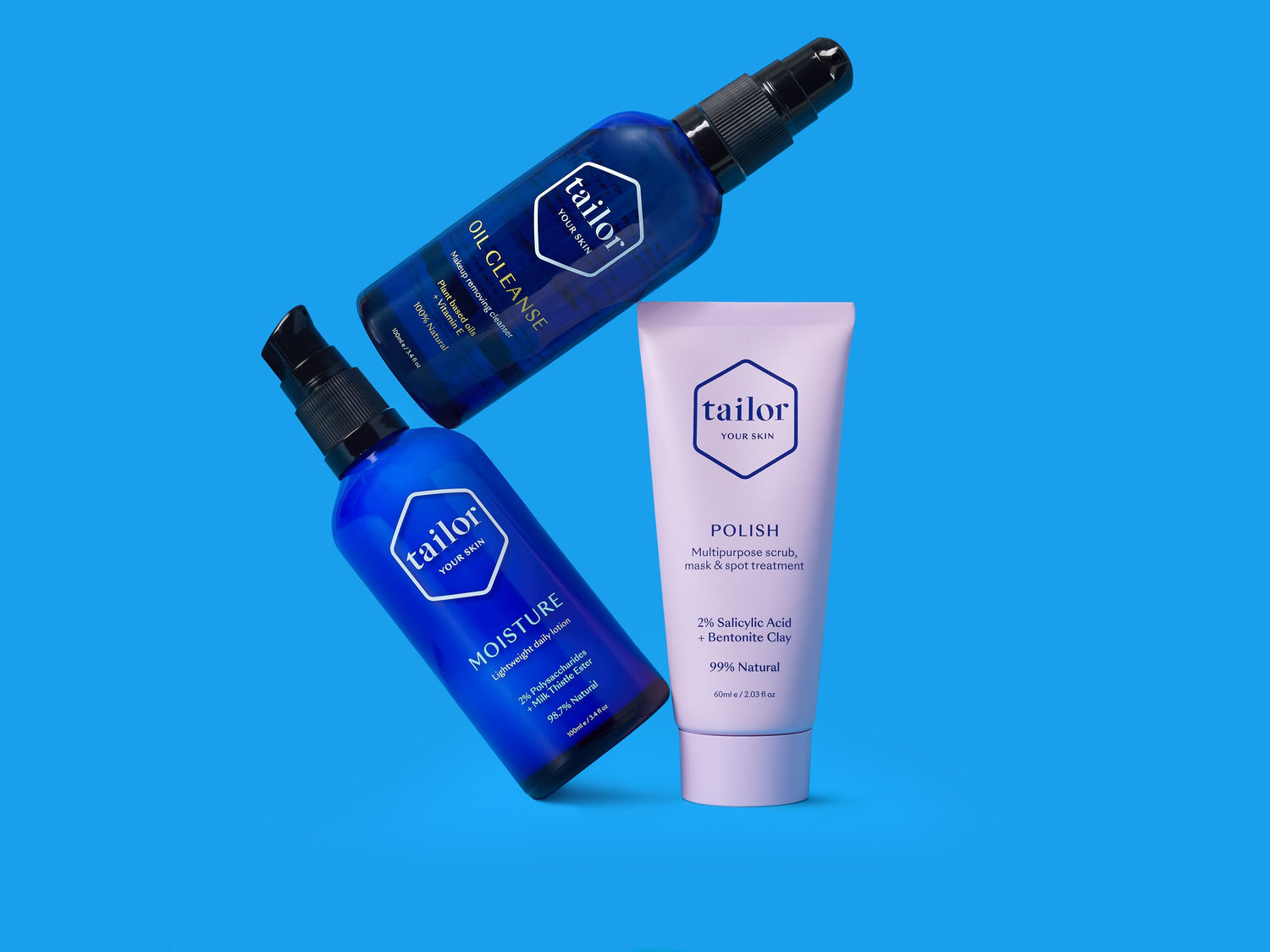Are you on a quest for healthy skin? Do you wonder how to get it, how to maintain it and what goes into the process?
We get a lot of questions about moisturising and how we can enhance our skin from the inside and out. It can be confusing when educating ourselves on our skin’s moisture, navigating the terminology and trying to understand the “why and how”. We’ve created Moisturiser 101 - our newest “micro-course” to help you better understand moisturisers and what your skin needs.
Why does skin have moisture?
All cells need water to function properly. Water is used to keep cells plump and assists with the elimination of toxins. The skin’s oil production is a natural function which helps to keep your cells hydrated.
To show how these oils function to prevent dehydration, add a layer of oil to a glass of water and place it beside another glass of water without oil. The glass without the oil will lose significantly more water over the course of a week compared to the glass of water with the protective oily layer. When we compare this to your skin, you can then understand how the skin's natural sebum/oil protects not only our skin cells, but our entire system from dehydration.
Takeaways:
~Hydrated cells keep your skin looking plump and healthy
~Hydrated cells are better equipped to eliminate toxins and cellular waste
~Your skin’s natural oil or sebum is important because it protects your skin and entire system from dehydration

Are our natural oils sufficient or do we need moisturisers?
This depends on your skin. The skin is your body’s largest organ and has years of evolutionary development fine tuning its function. However, the skin’s natural processes can be thrown out of whack by dietary, environmental, age and lifestyle factors. When this happens it’s important to both identify the root cause and choose products which support the skin thus helping to gently balance these processes out. For example, when you’re a teenager your skin can go berserk with oil production. Using products to gently remove the dirty build up (such as Polish) and then replenishing your skin with clean, nutritious lightweight oils and humectant materials to keep the skin’s barrier in tact and hydrated is important for this skin type.
If your skin is sensitive, it will benefit from moisturisers with nourishing ingredients, like Vitamin E and rosehip oil. These ingredients are used in Moisture (which is also dermatologically tested to be gentle).
If your skin is combination, or just looking a little dull and lackluster, you can support it by pumping up the water content with humectant materials. Use ingredients to rehydrate and brighten the skin like hyaluronic acid and niacinamide (found in Hydrate).
Takeaways:
~Choose products with natural ingredients which help to balance your skin’s natural function when it’s thrown out of whack by factors such as environment, age, lifestyle and your diet
~There are different ways moisturisers work and choosing the right one for your skin’s needs is vital
~The key to healthy skin is to choose products which will help keep your skin's barrier function intact

What factors affect your skin's hydration level?
One way hydration can vary is through the skin’s rate of oil production. Skin which produces little to no oil will be more dehydrated on average. That’s because there’s little or no protective oily layer to prevent the evaporation of water from your skin and body’s cells. The skin’s oil production slows down as we age, which means that as we get older it’s important to support and supplement the skin’s natural oils with products containing natural ingredients.
Climate and environment are also key factors. When the weather cools down, your skin’s natural oil production also slows, leading to dry skin during the winter months, a reason why we often find ourselves reaching for the richer moisturising creams.
Diet and lifestyle also play a major role in the skin's hydration levels and oil production. Caffeinated and alcoholic drinks have a diuretic effect on the body’s system causing you to eliminate water and can result in dehydration if you’re not replenishing your system throughout the day. As a rule of thumb, we recommend drinking at least 2L of clean pure water every day and more if you’re having caffeinated drinks such as coffee, tea (green and black) or kombucha.
Studies have also shown that omega 3 essential fatty acid will help to protect your body’s cells from inflammation to keep them moisturised and hydrated (more on this later).
Takeaways:
~As we age our skin’s rate of oil production declines, increasing our need to support the skin with products containing natural ingredients
~During the cooler weather the skin’s oil production slows down and we also consume less water resulting in dehydration and dull skin
~Caffeinated and alcoholic drinks can result in dehydration so if you’re having caffeinated drinks make sure to drink at least 2L of clean pure water every day
~Omega 3 is an essential dietary component to keep your skin moisturised and prevent inflammation

How can we measure the hydration of skin?
Transepidermal water loss (TEWL) is the measurement of water that moves from inside your body through the epidermal layer (skin) to the external environment. Measuring TEWL is a key way to assess the performance of our skin’s barrier which can also be compromised when we have eczema, burns, and other skin sensitivities which can be caused by the products we’re using. TEWL is also a useful measure in the skincare industry to test the efficacy of moisturising products and see how well they protect the skin from dehydration. There are a number of different types of moisturisers and although a high TEWL score is a positive attribute it does not always mean that the moisturising product is the best for your skin (more on this in the next section).
How do moisturisers work?
To make more sense of these materials mentioned above, let’s break them down into three categories and look at some examples of synthetic ingredients to avoid and natural materials you should look for when choosing your skincare.
1. Occlusive agents
Occlusive agents are ingredients that form a film on the skin to prevent water loss while keeping out nasties like allergens and irritants. Mineral oil is the most common synthetic occlusive ingredient and although it’s very good at reducing TEWL, there are a number of chemicals involved in manufacturing this ingredient. Jojoba oil is a great example of a natural occlusive agent, which is actually a wax rather than an oil and have properties almost identical to that of your skin's own natural oil. You can find in Tailor Renew and Moisture.
2. Humectants
Humectants prevent the loss of water thereby retaining the skin’s natural hydration levels. Some compounds also have the ability to actively attract moisture. These materials are such great little workers because they help to draw in the water and keep your skin hydrated without overly oily materials. Look for hyaluronic acid, which is the most natural hydrophilic (water loving) molecule. It can hold up to 1000x its weight in water while creating a protective barrier, to both draw in and hang on to water. You can find this ultra-hydrating active in Hydrate.

3. Emollients
Emollients have the quality of softening or soothing the skin. Fats and oils are classic examples of emollients. One of our favourite emollients is hemp seed oil, found in Illume, which feeds your skin with omega fatty acids to replenish and nourish plus strengthen its surface against moisture loss.

Are there specific components that keep skin moist?
Fatty acids are key components which help to maintain the function of your skin cells, provide support for the cell membrane helping to prevent water loss and also ensure the transfer of nutrients into the cell and cellular waste out.
Omega 3 essential fatty acid is the kingpin to moisturise skin. It’s essential because your body can’t make it. Ann Yelmokas McDermott, PhD, a nutritionist at the Jean Mayer USDA Human Nutrition Research Center on Aging at Tufts University in Boston said, “These fatty acids are responsible for the health of the cell membrane, which is not only what acts as the barrier to things that are harmful, but also the passageway for nutrients to cross in and out and for waste products to get in and out of the cell.” Thus, once again explaining to us why fatty acids are so important.
Hyaluronic acid (or HA) is another key component that helps to keep the skin moisturised. One of its key functions in the skin is to keep the space outside of your cells hydrated and provide a “gooey” structure which helps carry nutrients into a cell and transport cellular waste away from the cells. Maintaining the extracellular space and providing an open, as well as hydrated, structure for the passage of nutrients are the main functions of HA in epidermis.
Is more expensive skincare more effective?
More money does not always equal more effective. Natural products tend to be more expensive than your synthetic supermarket brands. Investing in a good quality natural product is worth the money because natural ingredients contain vitamins, minerals and fatty acids which nourish the skin and help it to be healthy. Synthetic ingredients like petroleum jelly, also known as mineral oil (not made from beneficial minerals), which don't nourish the skin, simply provides a barrier protecting the skin from TEWL.

